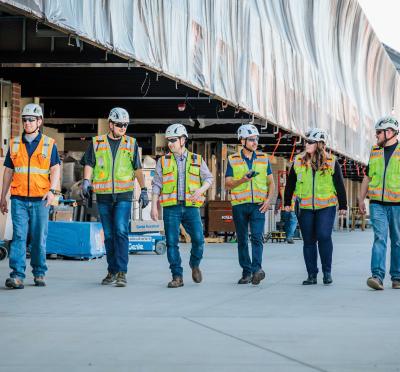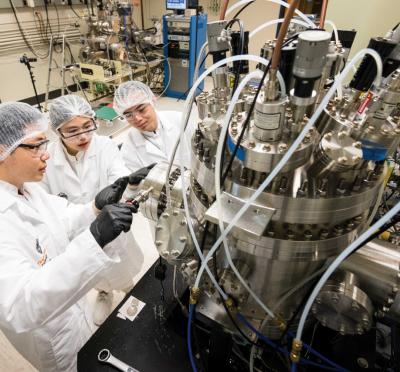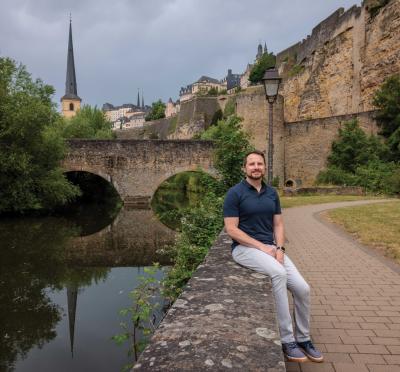Oregon Freeze Dry is expanding its operations in the biopharmaceutical sphere, aiming to take a bite out of a $400 billion global market that includes vaccines and biotherapeutics. Last fall, the company opened a state-of-the-art $7.5 million development and clinical supply facility at its headquarters in Albany.
The facility is on track to receive Biosafety Level 2 certification from the Food and Drug Administration in October. Once up and running, it will be able to produce supplies of biologics for clinical trials and for small-scale commercial production.
Heading up the effort is Walter Pebley, B.S. agricultural engineering ’84, the company’s vice president of pharma development and technical innovation.
“What we’re doing at this facility on a small scale will enable us to ramp up to a much larger scale,” Pebley said. “Essentially, we’re developing a platform technology to freeze-dry, or lyophilize, all kinds of biologics in bulk, including vaccines. These can be prepared for various routes of administration.”
Oral vaccines are a particularly hot area, Pebley notes, and interest has surged since the onset of the COVID-19 pandemic. In addition to sparing patients the pain of the needle and risks associated with injection, oral administration offers many other benefits — such as enabling the deployment of vaccines to remote or low-resource areas, without requiring skilled health care workers.
Unlike their injectable counterparts, freeze-dried biologics are shelf-stable over a broad range of temperatures, Pebley adds. And, without need for a bulky liquid carrier medium, they are more compact, lightweight, and economical to transport.
in OFD’s new ISO-5 facility, process development engineers suit up through a double-gowning area before passing through an airlock into a HEPA-filtered environment. Enormous air handlers, about two stories high, churn constantly right outside the door to ensure that no airborne contaminants get in and no biologic particles escape.
OFD is best known to consumers for its Mountain House brand of freeze-dried foods, popular with backpackers. While it might seem like quite a leap — from beef stew to biologics — the logic behind freeze-drying is essentially the same in both cases.
Freeze-drying, or lyophilization (as it is known in medical and biopharmaceutical contexts), places bacteria, stem cells, or genetic components into a state of suspended animation, to be reconstituted later and literally brought back to life. And OFD has plenty of experience in this area.
“That’s what we’ve been doing since 1986, stabilizing microbial products,” Pebley said. “Today, we’re probably North America’s largest freeze-dryer of probiotics.”
OFD’s turn toward biopharmaceuticals started to take shape in 2008, when the company began work with the Defense Advanced Research Projects Agency on a project to stabilize blood platelets for use in stopping internal hemorrhages.
“The DARPA activity helped us to see the potential in the biopharma realm, where we were able to gain the skill sets necessary to preserve sensitive material, assess materials’ viability and bioavailability, and really develop in this area,” Pebley said.
Pebley first came to work for OFD in the summer of 1982, while he was still a student at Oregon State. When he graduated in 1984, the company offered him a full-time job. His marching orders: Find areas outside food-processing for OFD to expand into. It’s what he’s been doing ever since.
Pebley has developed strong connections with Oregon State, serving on the industry advisory board of the School of Chemical, Biological, and Environmental Engineering, mentoring interns each year through the MECOP program, and sending materials to campus labs for biochemical assays that cannot be performed in-house.
“It’s so important to maintain that lifeline to new engineering talent,” Pebley said. “We hire a lot of chemical, mechanical, and industrial engineers. And bioengineers, of course.”



